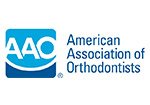Children's Dentistry – Thorndale, PA
Providing Care for Young Smiles

Are you struggling to find a children’s dentist in Thorndale who can take care of your little one’s smile? A child’s teeth are constantly growing and developing, and it is important that they see someone who can monitor their progress to ensure no problems develop along the way. Dr. Mark Simeone and his team at Chester County Dental Arts are passionate about treating young smiles, which is why he is pleased to offer children dentistry services. Whether it is regular dental checkups and cleanings, providing fluoride treatments, or applying dental sealants, his goal remains to help your child achieve a lifetime of good oral health. To schedule an appointment for children's dentistry in Thorndale, PA, contact our dental office.
Why Choose Us for Children’s Dentistry?
- Personalized treatment plan to ensure proper growth and development
- Highly skilled and trained dental team
- Convenient hours that include night and weekend
The Importance of Regular Dental Appointments

Before your child’s first tooth ever erupts, it is important that their oral health be a priority. As they grow and develop, these young teeth are susceptible to a host of dental problems, which can quickly advance if not properly monitored and cleaned on a regular basis. The American Academy of Pediatric Dentistry suggests that you schedule your child’s first dental visit by the time they turn one year old. After their initial visit, you’ll need to stick to a six-month schedule for regular checkups and cleanings.
Dental Checkups and Teeth Cleanings

Young teeth are far more prone to cavities since children have yet to perfect a proper brushing technique. Back teeth are often hard to reach, and the grooves and pits of these teeth can trap harmful bacteria and food particles throughout the day. By ensuring your child visits our dental office every six months, we can remove any plaque and tartar build-up from around the teeth and gums, and Dr. Simeone can perform a thorough examination to make sure there are no issues in the development of their smile.
Dental Sealants

Since a child’s back teeth are hard to reach, these are the ones that most often develop cavities. Because these teeth take the brunt of chewing the foods your child eats throughout the day, it can be hard to thoroughly clean the pits and grooves found in molars. This is where dental sealants can help. By applying a thin, plastic coating over these teeth, your child can be better protected from bacteria and plaque, thus, reducing their chances of developing tooth decay or cavities.
Tooth-Colored Fillings

Should a cavity arise in one of your child’s teeth, a tooth-colored filling can be placed. Not only is this a more environmentally friendly dental solution, but it is also non-toxic and can blend in with your child’s smile. Dr. Simeone will clean out the tooth as normal before filling and sealing it with composite resin to prevent further reinfection. It will be matched to their natural tooth color, so no one will ever know that they’ve had dental work.
Children’s Dentistry Frequently Asked Questions

Looking for a dental office that offers children’s dentistry? Dr. Mark Simeone understands you want a trusted professional who can take care of all your child’s dental needs. This is why you can feel confident knowing he and his team are here to answer your questions, address your concerns, and most of all, help your child achieve a happier, healthier, more beautiful smile. To give you a better understanding of what you can expect when you bring your child in for an appointment, we’ve compiled a few frequently asked questions about children’s dentistry for you to review. Should you wish to inquire about additional services, please do not hesitate to contact us to schedule an appointment.
What is the best way to prepare my child for their first visit?
When it comes to preparing your child for their first dental visit, make sure you maintain a positive attitude. Children often pick up feelings of uncertainty, which can make them nervous or anxious about their appointment. By helping your child stay calm and focused on the positive aspects of maintaining a healthy smile, they will feel more confident and maybe even excited about visiting the dentist.
How should I clean my baby’s teeth?
The best thing you can do when it comes to cleaning your baby’s smile is to start before the first tooth ever erupts. By taking a clean, damp washcloth, you can gently wipe their gums clean of any formula or residue left behind from feedings. Once the first tooth breaks through the gums, it is best to use a soft-bristled toothbrush or a finger brush to carefully clean the tooth. If you need tips on how to effectively clean your child’s first baby teeth, don’t hesitate to reach out to Dr. Simeone and his team.
Is my child getting enough fluoride?
Knowing how much fluoride your child should be getting isn’t easy for a parent to determine. It often takes a dentist who offers dentistry for kids to best conclude how much is enough to protect growing teeth safely and effectively. While many communities incorporate fluoride into the drinking water, various toothpaste brands include it as well. It is even possible for your child to receive additional fluoride treatments if Dr. Simeone believes it to be necessary. If you are ever unsure if your little one could benefit from additional fluoride, simply ask the dentist during their next visit.
Why are baby teeth important?
Yes, it is true that baby teeth will just simply fall out one day, but that doesn’t mean they don’t deserve proper care and treatment. These teeth serve as the foundation for your child’s adult teeth, and if they fall out too early, it can spell disaster if not treated correctly.
Apart from regular dental checkups and cleanings every six months, making sure your child is brushing, flossing, and rinsing is necessary to keeping baby teeth in place as long as possible. Should one or more fall out early, Dr. Simeone and his team will need to provide adequate treatment to prevent nearby healthy teeth from shifting and causing a problem when the permanent tooth erupts.
How can I help my child avoid cavities?
To help your child avoid tooth today, help them brush their teeth twice per day. It’s also important that you help them floss any of their teeth that are touching. Just keep in mind that some kids have space between their front teeth while their back teeth are touching, so it is important to be throughout. Ask your dentist about which products they recommend for your child. Avoid excessive sugary foods and drinks and maintain a healthy smile with plenty of fruits and veggies. Lastly, schedule appointments for your child to see their dentist twice a year for routine cleanings and checkups.
What should I do if my child sucks a thumb?
A lot of children suck their thumbs or fingers when they are kids. Most kids grow out of it as they get older, so it doesn’t cause any significant damage to their smile. However, if your child continues to suck their thumb after their permanent teeth have erupted, let us know so we can see if any issues are arising and discuss possible solutions.
When should my child have dental X-rays taken?
In most cases, the first set of dental X-rays for children are taken around the age of three. This familiarizes children with the process and gives us a chance to see the upper and lower front teeth. After the baby teeth in the back touch each other, regular X-rays are recommended each year. These X-rays help us ensure that your child’s teeth and jaw are healthy and properly aligned. If there are any concerns, we can act early on.
How do I get my toddler to brush their teeth?
Convincing small children to participate in the teeth-brushing process can be a challenge. Here are some tips that may be able to help:
- Play a 2-minute song as they brush.
- Let them play with their toothbrush to get them used to it.
- Have your child lay on a couch or with their head in your lap as your brush.
- Brush your teeth at the same time as your child to make it a group effort.
- Use your toddler’s favorite stuffed animal as a “model” for teeth brushing.
- Have your child road like a lion, dinosaur, or bear to encourage them to open wide!









